#domestic solar water heater
Explore tagged Tumblr posts
Text
Domestic Solar Water Heaters
Harnessing Solar Power: The Ultimate Guide to Domestic Solar Water Heaters
Introduction
In today's era of environmental consciousness and rising energy costs, domestic solar water heaters have emerged as a sustainable and cost-effective solution for households worldwide. As green energy use, we firmly believe in the power of solar energy to revolutionize how we heat water in our homes. In this comprehensive guide, we will delve into the intricacies of domestic solar water heaters, exploring their benefits, installation process, maintenance requirements, and much more.
Understanding Domestic Solar Water Heaters
What Are Domestic Solar Water Heaters?
Domestic solar water heaters utilize sunlight to heat water for residential use. Unlike traditional water heaters that rely on electricity or gas, these systems harness the abundant and renewable energy of the sun to provide hot water for various household activities.Buy a Domestic solar water heaters from Jupiter Solar,www.jupitersolars.in.
How Do They Work?
At the core of a domestic solar water heater is a solar collector, typically mounted on the roof or any other sun-exposed area. This collector absorbs sunlight and converts it into heat, which is then transferred to a fluid circulating through the system. This heated fluid is then pumped to a storage tank, where it warms the water used in sinks, showers, and appliances.

Advantages of Domestic Solar Water Heaters
1. Energy Efficiency
Domestic solar water heaters significantly reduce reliance on non-renewable energy sources, leading to lower utility bills and a smaller carbon footprint. By harnessing solar power, households can enjoy hot water without contributing to greenhouse gas emissions.
2. Cost Savings
While the initial investment in a domestic solar water heater may seem substantial, it pays off in the long run through reduced energy bills and potential government incentives or rebates for renewable energy systems. Over time, homeowners can recoup their investment and enjoy substantial savings on utility expenses.
3. Reliability
Solar energy is abundant and reliable, making domestic solar water heaters suitable for various climates and regions. With proper installation and maintenance, these systems can provide consistent hot water year-round, even on cloudy days or during winter months.
4. Environmental Benefits
By opting for a domestic solar water heater, homeowners contribute to the global effort to combat climate change and preserve natural resources. Solar energy is clean and renewable, helping to reduce air and water pollution associated with traditional heating methods.
Installation Process
Planning and Siting
Before installing a domestic solar water heater, it's essential to assess your home's suitability for solar energy. Factors such as roof orientation, shading, and local climate play a crucial role in determining the system's effectiveness. Consultation with a qualified solar installer can help you evaluate these factors and design a system tailored to your needs.
Equipment Installation
Once the planning phase is complete, the installation process begins with mounting the solar collector on a suitable location, typically the roof. Next, the storage tank and associated plumbing are installed, connecting the collector to the existing water supply and distribution system. Finally, the system is tested to ensure proper functionality and efficiency.
Maintenance and Care
Regular Inspections
To ensure optimal performance, domestic solar water heaters require periodic inspections by trained professionals. These inspections typically involve checking for leaks, cleaning the solar collector, and testing components such as pumps and valves.
Seasonal Maintenance
In regions with harsh winters or extreme weather conditions, additional maintenance may be necessary to protect the system from damage. This may include draining the system to prevent freezing, insulating exposed pipes, and adjusting settings for maximum efficiency in cold weather.
Conclusion
Domestic solar water heaters offer a sustainable and economical solution for meeting the hot water needs of modern households. From energy efficiency and cost savings to reliability and environmental benefits, these systems provide a myriad of advantages for homeowners looking to embrace renewable energy. By understanding the installation process, maintenance requirements, and long-term benefits of domestic solar water heaters, individuals can make informed decisions to reduce their carbon footprint and enjoy the benefits of clean, renewable energy.
#solar water heater#solar energy#bangalore#india#solar#solar water heaters#bengaluru#solar water heating#solar heater#water#domestic solar water heaters#domestic solar water heater#water heaters#solar water heaters in bangalore#hot water#heaters#heating#heater#heat#solar power#renewableenergy#energy
1 note
·
View note
Link
On shady days and blustery days, your solar chargers or solar water heater ingest power. Go through this article to know what is the effectiveness of solar water heaters in India during cloudy weather.
#solar water heater#water heater#domestic water heater#industrial solar water heater#Domestic Solar Water Heater
0 notes
Text
Why Buy The Solar Collector Panels Hot Water For Your Home?

Environmental sustainability and cost-effective living are becoming increasingly important in today's world. Thus, harnessing the sun's power for your household's hot water needs is a smart and responsible choice. Solar collector panels hot water, designed to collect the sun's energy and change it into heat for your home's water supply, offers numerous benefits that go beyond just saving on energy bills. Read more:- https://www.biztobiz.org/articles/why-buy-the-solar-collector-panels-hot-water-for-your-home
#solar collector panels hot water#solar domestic hot water heater#solar domestic hot water system design
0 notes
Text
https://airexheaters.com/industrial-heaters.php?cid=18
Our heating elements are meticulously designed to ensure your pizza is baked to perfection every time. Whether you're a pizzeria owner or a passionate home cook, our heating elements are your trusted partners in crafting the ideal pizza experience.
Experience even heat distribution, precise temperature control, and consistent results with every pie you create. It's not just about heating; it's about elevating your pizza game to new heights.

#pizzahead#heating elements#domestic heater#solar heater#heating coil#water heater#water heater element replacement#heating#immersion heater#heaters#industrial heater manufactures india
0 notes
Text

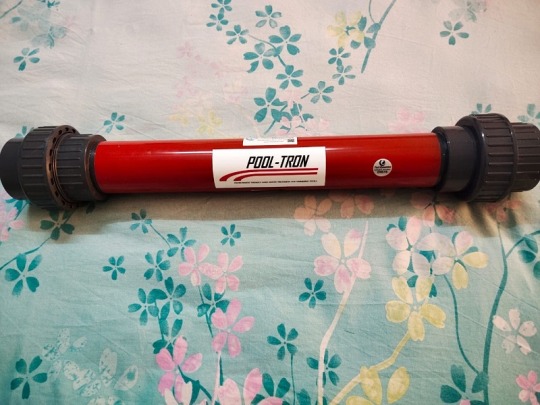
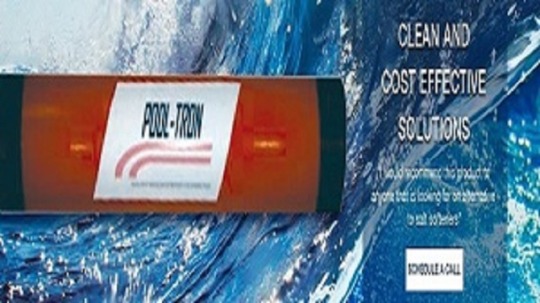
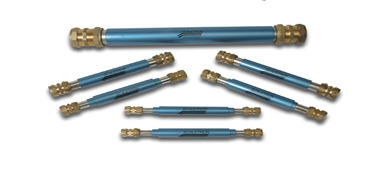
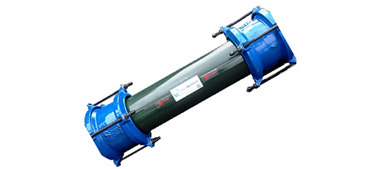


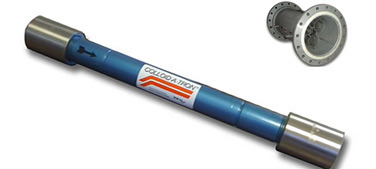
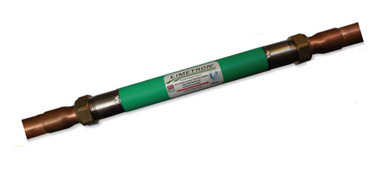
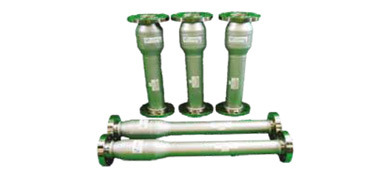

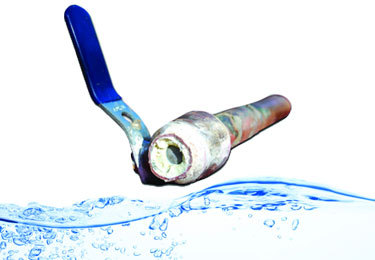

#Water Solutions Experts#Solar Water Heater in Jaipur#Racold Water Heater in Jaipur#Racold Heat Pumps in Jaipur#Commercial Domestic Heat Pumps#Skymech Softener
0 notes
Text
Things Biden and the Democrats did, this week. #5
Feb 9-16 2024
The Department of Education released the first draft for a wide ranging student loan forgiveness plan. After Biden's first attempt at student debt forgiveness was struck down at the Supreme Court in 2023, this new plan is an attempt to replace it with something that will hold up in court. The plan hopes to forgive debt for anyone facing "financial hardship" which has been as broadly defined as possible. Another part of the plan hopes to eliminate $10-20,000 in interest from all student loans, as well as a wide ranging public Information push to inform people of other forgiveness programs they qualify for but don't know about.
The House passed 1.2 Billion Dollars to combat human trafficking, including $175 million in housing assistance to human trafficking victims
The Department of Transportation announced $970 Million for improvements at 114 airports across 44 states and 3 territories. They include $40 million to O'Hare International in Chicago to improve passenger experience by reconfiguring TSA and baggage claims, and installing ADA compliant bathrooms(!). The loans will also go to connecting airports to mass transit, boosted sustainability, installing solar and wind power, and expanding service to under served committees around the country.
Medicare & Medicaid released new guidelines to allow people to pay out of pocket prescription drug coats in monthly installments rather than as a lump sum. This together with capping the price of certain drugs and penalties for drug companies that rise prices over inflation is expected to save the public millions on drug coasts and assure people don't pass on a prescription because they can't pay upfront
The EPA announced its adding 150 more communities to its Closing America's Wastewater Access Gap Community Initiative. 2.2 Million Americans do not have basic running water and indoor plumbing. Broken and unreliable wastewater infrastructure exposed many of those to dangerous raw sewage. These Americans live primarily in poor and rural communities, many predominantly Black communities in the south as well as those on tribal lands. The program is aiming to close the wastewater gap and insure all Americans have access to reliable clear water.
The White House announced deferred action for Palestinians in the US. This means any Palestinian living in the United States, no mater their legal status, can not be deported for any reason for the next 18 months.
The Department of Energy announced $60 million in investment into clean geothermal energy. The plan will hopefully lead to a 90% decrease in the coasts of geothermal. DOE estimates hold that geothermal might be able to power the hopes of 65 million Americans by 2050 making it a key step in the Biden administration plan for a carbon-free grid by 2035 and net-zero emissions by 2050.
The EPA launched $83 million to help improve air quality monitoring across America. With updated equipment local agencies will be better able to report on air quality, give more localized reports of bad air quality and the country will be better equipped to start mitigating the problem
The Department of Energy announced $63 million in investments in domestic heat-pump manufacturing. Studies have shown that heat-pumps reduce green house gases by 50% over the most efficient condensing gas boilers, as technology improves this could rise to 75% by 2030. Heat pump water heaters meanwhile are 2 to 3 times as energy efficient as conventional electric water heaters.
HHS awarded $5.1 million to organizations working with LGBTQI+ Youth and their Families. The programs focus on preventing homelessness, fighting depression and suicide, drug use and HIV prevention and treatment, as well as family counseling and support interventions tailored for LGBTQI+ families.
The House passed two bills in support of the oppressed Uyghur minority in China. The "No Dollars To Uyghur Forced Labor" Act would prohibit the US government from spending any money on projects that source materials from Xinjiang. The Uyghur Policy Act would create a permanent post at the State Department to coordinate policy on Uyghur Issues, much like the special ambassador on antisemitism.
#Joe Biden#Thanks Biden#politics#US politics#Democrats#climate change#student loans#student loan forgiveness#green energy#Palestinians#Uyghur
214 notes
·
View notes
Text
BIPV Market: Trends Supplement Large-Scale Solar Systems Adoption
As per the International Energy Outlook, the global power demand is expected to rise by 80%, requiring an investment of around $19.7 trillion by 2040. Also, the Paris Agreement set a target of limiting global warming temperature below 2° Celsius, preferably 1.5° Celsius. This has influenced governments to seek innovative ways to reduce emissions while meeting energy demand, which has paved the way for photovoltaic materials in buildings. Triton’s analysis estimates that the global building integrated photovoltaics market will propel at a CAGR of 17.31% during the forecast period 2023-2030.
Building integrated photovoltaics serves the dual purpose of being the outer layer of a building and a power generator. This, in turn, has opened a new frontier in green infrastructure, influencing architects to develop energy-efficient and aesthetically appealing buildings. For instance, Ubiquitous Energy’s transparent solar window panels, UE Power, have emerged as an aesthetically appealing power-generating alternative to conventional windows.
BIPV Revolution: Trends Reshape Energy Landscape
According to the International Renewable Energy Agency (IRENA) , around 90% of the world’s power can be generated with renewable energy by 2050. Since buildings consume high amounts of energy, BIPV integration will facilitate their transition from energy users to producers. On that note, the notable trends reshaping the market are:
Governments perceive investing in green energy solutions as an opportunity to attain GHG reduction targets. Hence, over the past few years, authorities worldwide have employed various measures to stimulate the adoption of sustainable technologies, including BIPV modules, across residential, commercial, and industrial sectors. For example:
As per the Indian Ministry of New & Renewable Energy (MNRE) , the government has implemented the production-linked incentive (PLI) scheme for high-efficiency solar PV modules with an outlay of INR 24,000 crore, to achieve domestic manufacturing capacity of solar PV cells and modules.
In 2021, the German government amended the Renewable Energy Act by establishing grid priority to drive the onshore wind, solar PV, and biogas growth. The government proposed to increase its solar capacity installations to 100 GW by 2030.
The Chinese government also formulated a policy that requires all new buildings to conform to energy guidelines modeled after LEED specifications. This policy combines a recent initiative to reconstruct 50% of residential high-rise buildings. The country is anticipated to add more than 600 GW of solar power by 2030.
Reaping the benefits from such incentives, the industrial sector leads the BIPV market at 39.54%. However, over the forecast period 2023-2030, the commercial sector is expected to witness the fastest growth at 17.38%.
As per IEA, the global solar PV generation reached around 821 TWh in 2020, a whopping 23% increase from 2019. The energy association also stated that next to utility-scale deployment, distributed applications on buildings contribute to around 40% of PV use globally. In this regard, rooftop-based applications are alleviating the burden on the distribution grids, enabling companies and households to pay lesser energy bills while reducing emissions. Moreover, the cost of installing rooftop PV systems reached around $1 per watt. Hence, roofing captures the majority of the market share at 55.69% in terms of application.
China drives the global market, followed by the US, European nations, and Japan playing a major role. The rise in installations from around 19.4 GW in 2017 to 27.3 GW in 2021 was the key aspect that made China a leader in rooftop installations. For instance, Shanghai and Dezhou have acquired the title of ‘Solar City’, which features a large fleet of rooftop solar water heaters. Besides, the Net Zero Energy Building mandate across China is expected to accelerate the PV roofing segment, with solar tiles gaining major traction. Hence, these developments are expected to widen the scope of the Asia-Pacific BIPV market over the forecast period 2023-2030.
IEA projects that photovoltaic systems are estimated to account for approximately 14% of the total power generation by 2050, owing to the rising detrimental impact of fossil fuels. In fact, the organization stated that PV systems saved more than 860 million tons of C02 in 2020. The construction industry is highly innovative in the commercial sector owing to the development of cost-effective zero-emission green facilities.
As per IRENA, Germany ranks fourth in solar energy production globally. In 2021, the nation installed solar capacities of almost 60 GW, an increase of 5.3 GW from 2020. These actions are based on the country’s aim to obtain a 65% share of the renewable energy sector by 2030. Moreover, the Energy Efficiency Strategy for Building suggested advanced technology development to achieve the goal of a virtually climate-neutral building stock by 2050. Hence, the growing focus on sustainable energy sources fuels the overall Europe BIPV market, spearheaded mainly by Germany.
PV Cost Reduction: A Driving Force for Market Players
Since photovoltaic systems generate energy with around 42% efficiency using multi-junction cells, they have emerged as an ideal alternative over complex installations, such as wind turbines. As per the UN, between 2010 to 2020, the cost of power from solar systems plummeted by around 85%. This highlights the question:
What induced PV cost reduction?
The significant cost decline is mainly because of overproduction and higher investment in PV modules. Another factor is the efforts by Chinese suppliers and wholesalers to reduce the stock held in European warehouses to prevent anti-dumping and anti-subsidy tariffs. This oversupply, from China to Europe thus shrunk the cost of silicon. Such developments led energy solutions supplier Sungrow to supply products to the world’s largest BIPV plant (120 MW) in Central China’s Jiangxi Province. Therefore, the increasing efficiency, ease of installation, and decreasing cost of PV modules over conventional sources like coal and natural gas are expected to open new avenues for players in the building integrated photovoltaics market.
#building integrated photovoltaics market#bipv market#bipv#energy industry#power industry#market research report#market research reports#triton market research
2 notes
·
View notes
Text
Solar Domestic Hot Water Heating
Solar water heaters are appliances that help in heating water by harnessing renewable energy from the sun with a thermal collector. They are a cost-effective and environmentally sustainable way to generate hot water for home or commercial purposes. Solar water heaters are appliances that help in heating water by harnessing renewable energy from the sun with a thermal collector. They are a cost-effective and environmentally sustainable way to generate hot water for home or commercial purposes.
Solar water heaters sometimes called solar domestic hot water systems — can be a cost-effective way to generate hot water for your home. They can be used in any climate, and the fuel they use sunshine is free.
green_well #Solar_Domestic_Hot_Water_Heating

0 notes
Text
Harnessing the Sun: A Guide to Solar Products
Solar energy, a clean and renewable source of power, is rapidly gaining popularity worldwide. Solar products offer a sustainable solution to meet our energy needs, reducing reliance on fossil fuels and mitigating climate change.
Key Solar Products
Solar Panels: These photovoltaic cells convert sunlight directly into electricity. They can be installed on rooftops, in solar farms, or integrated into building designs.
Solar Water Heaters: Utilizing solar thermal technology, these systems heat water for domestic use, reducing reliance on traditional water heaters.
Solar Street Lights: Powered by solar energy, these lights illuminate public spaces, saving energy and reducing carbon emissions.
Solar Inverters: These devices convert direct current (DC) electricity generated by solar panels into alternating current (AC) electricity, suitable for powering household appliances and the electrical grid.
Solar Batteries: These store excess solar energy generated during the day, allowing for its use during nighttime or periods of low solar irradiance.
Benefits of Solar Energy
Environmental Friendliness: Solar energy is a clean and renewable source of energy, reducing greenhouse gas emissions and air pollution.
Cost Savings: While initial investment costs may be higher, long-term savings on electricity bills can be substantial.
Energy Independence: By generating electricity on-site, individuals and businesses can reduce reliance on the traditional grid and achieve energy independence.
Low Maintenance: Solar systems require minimal maintenance, ensuring long-term reliability and performance.
Government Incentives: Many governments offer incentives and subsidies to encourage the adoption of solar energy, making it more affordable.
The Future of Solar Energy
As technology continues to advance and costs decline, solar energy is poised to play an even greater role in our energy landscape. Innovative solar products, such as solar-powered cars and drones, are emerging, further expanding the possibilities of this clean and renewable energy source. By embracing solar energy, we can contribute to a more sustainable and resilient future.
0 notes
Text
The Ultimate Hot Water Professionals
VENUS - The Ultimate Hot Water Professionals: A Legacy of Quality and Innovation

For over 60 years, we have been at the forefront of the hot water industry, earning the trust of countless customers worldwide. Our journey has been defined by an unwavering commitment to quality, innovation, and an in-depth understanding of our customers' unique needs..
A Legacy Built on Quality

Venus is synonymous with expertise and reliability in the hot water industry. Our reputation as hot water professionals stems from our dedication to crafting the highest quality products. From the very beginning, we've understood that hot water is more than just a convenience—it's a necessity. This understanding has driven us to continually push the boundaries of what's possible in water heating technology.
One of our proudest achievements is our pioneering work in the development of porcelain enamel tanks. Recognized for their durability and resistance to corrosion, these tanks have set a new standard in the industry. By introducing this technology, we have not only enhanced the longevity of our products but also ensured that our customers receive the most reliable hot water solutions available.
Pioneers in Technology

Innovation is at the heart of everything we do. We are not just manufacturers; we are innovators who continually seek out the latest technologies to improve our products. Our commitment to innovation is evident in our comprehensive range of hot water solutions, designed to meet the diverse needs of commercial, domestic, and industrial applications.
From solar water heaters to advanced heat pumps, and from swimming pools to luxury bathrooms, our products are engineered to provide efficient and reliable hot water solutions. Our Quik Tankless range, for instance, offers instant hot water, perfect for those who value convenience and luxury in their everyday lives.
A Global Leader in Exports

As a leading exporter, our products have found homes in hotels, hospitals, swimming pools, and residences across the globe. Our global reach is a testament to the trust that customers worldwide place in our brand. They know that when they choose our products, they are choosing the highest quality and the latest in hot water technology.
The Most certified water heater brand:

When you choose VENUS, you're choosing the most certified water heater brand that meets stringent domestic and international standards. Safety, efficiency, and performance
The Indian Standards Institute (ISI) certification ensures that products meet specific quality and safety benchmarks. It involves rigorous testing and compliance checks, reinforcing the reliability of certified products in the market. As the first ISI-certified water heaters, this distinction enhances consumer trust and strengthens market credibility.
The significance of ISI certification extends beyond compliance; it fosters safety, quality, and consumer trust. Venus has the ISI certification since 1972.
At VENUS, we serve a global market, and our products meet various international safety and quality standards. We have the CE certification to meet European standards and various certifications to meet region specific safety and efficiency standards.
Understanding Our Customers:

What truly sets us apart is our deep understanding of our customers' needs. We know that every customer is unique, and we tailor our solutions to meet those specific needs. Whether it's the quality of the water, the local climate, or the particular demands of a commercial or domestic setting, we have the expertise to provide the perfect hot water solution. Our unique cartridge element technology is just one example of how we customize our products to suit our customers. Designed to enhance the efficiency and longevity of our water heaters, this technology ensures that our products deliver consistent performance, even in challenging conditions.
Additionally, our products are equipped with advanced hard water protection features, safeguarding the heating elements and extending the life of the unit.
Committed to After-Sales Service:

Our commitment to our customers doesn't end with the sale. We offer comprehensive after-sales service to ensure that our products continue to perform at their best. Our team of skilled technicians is always ready to assist with any issues, ensuring that our customers enjoy uninterrupted hot water supply.
As hot water professionals with over six decades of experience, we are proud of the legacy we have built. Our pioneering technology, commitment to quality, and deep understanding of our customers' needs have made us a trusted name in the industry. Whether you need a solution for your home, business, or industrial facility, you can rely on us to provide the highest quality products and unmatched service.
When it comes to hot water, we at VENUS are the professionals you can trust.
0 notes
Text
Solar Water Heaters - Harnessing the Power of the Sun for Energy-Efficient Water Heating

Solar water heaters are an innovative and eco-friendly solution that harnesses the sun’s energy to heat water for domestic, commercial, and industrial use. With rising energy costs and a growing focus on sustainability, solar water heaters offer a practical and environmentally-friendly alternative to conventional water heating methods. This article explores the advantages of solar water heaters, their working principles, types, and key considerations for potential buyers.
How Do Solar Water Heaters Work? A solar water heater system captures energy from the sun through solar collectors, typically installed on a roof or other sun-exposed areas. The energy is used to heat a fluid (usually water or a heat-transfer fluid like antifreeze) that flows through the collectors. The heated fluid then transfers its heat to the water in a storage tank, providing hot water for household use.
Solar water heaters generally work in two systems:
Active Systems: These use pumps to circulate the water or heat-transfer fluid through the system. They tend to be more efficient but require electricity to operate the pumps.
Passive Systems: These rely on natural convection (without pumps) to move water or fluid through the system. They are simpler, more reliable, and often cheaper, though they are less efficient than active systems.
Types of Solar Water Heaters There are two main types of solar water heater systems:
Direct Circulation Systems: In this type, water circulates directly through the solar collectors and into the home. These systems are ideal for warm climates where the water is less likely to freeze.
Indirect Circulation Systems: These systems use a heat-transfer fluid that circulates through the collectors, transferring heat to the water stored in a tank via a heat exchanger. Indirect systems are more suitable for colder climates where freezing temperatures are a concern.
Benefits of Solar Water Heaters Energy Efficiency and Cost Savings
Solar water heaters significantly reduce electricity or gas consumption, lowering energy bills. Since they utilize the free and abundant energy from the sun, they provide substantial cost savings over time. Although solar water heaters may require a higher initial investment, the long-term savings on energy bills typically offset the upfront costs. Depending on the local climate and system efficiency, a solar water heater can reduce water heating costs by 50% to 80%.
Environmentally Friendly
Solar water heaters have a minimal environmental impact compared to conventional water heaters powered by electricity or fossil fuels. By using clean, renewable solar energy, they help reduce carbon emissions and reliance on non-renewable energy sources. For environmentally-conscious homeowners, a solar water heater is a significant step toward a more sustainable lifestyle.
Low Maintenance and Long Lifespan
Once installed, solar water heaters require minimal maintenance. The systems are durable, with few moving parts that might need repair. They typically have a lifespan of 15-20 years or more, outlasting most conventional water heaters. Regular inspections to check for leaks, proper insulation, and optimal performance are usually sufficient to keep the system running efficiently.
Independence from Grid Electricity
One of the significant advantages of solar water heaters is their ability to operate independently from grid electricity. This makes them an excellent option for off-grid homes or in areas prone to power outages. Even in urban areas, using solar energy can help reduce the strain on the electrical grid, especially during peak usage times.
Considerations Before Installing a Solar Water Heater Climate and Sunlight Availability
Solar water heaters are most effective in sunny regions with minimal cloud cover. Homes in areas with consistent sunlight throughout the year benefit the most from these systems. However, they can still work efficiently in colder climates with the proper system design (e.g., indirect systems and freeze protection).
Installation Space
Solar collectors need to be installed on a roof or another location that receives ample sunlight, usually facing south (in the northern hemisphere) for maximum exposure. If the roof is shaded or not oriented correctly, solar water heating may not be as efficient.
Upfront Costs
While solar water heaters offer long-term savings, they come with a higher initial cost compared to conventional water heaters. The cost of installation varies depending on the size and type of the system, but it is essential to factor in government incentives, rebates, and tax credits that can help offset some of these costs.
Backup Heating System
In regions with less consistent sunlight or during overcast days, a backup heating system may be necessary to ensure a constant supply of hot water. Most solar water heater systems are designed to work alongside conventional systems to provide hot water when solar energy is insufficient.
Conclusion Solar water heaters are an energy-efficient, cost-effective, and environmentally friendly alternative to traditional water heating methods. By utilizing renewable energy from the sun, homeowners can significantly reduce their reliance on electricity or gas and lower their energy bills. While the upfront costs may be higher, the long-term savings, combined with the environmental benefits, make solar water heaters an excellent investment for those looking to embrace sustainable living. With various systems available to suit different climates and household needs, solar water heaters are fast becoming a popular choice for eco-conscious homeowners worldwide.
Hot Water Solutions
3d Taid Place, Rosedale, Auckland
0800497658
0 notes
Text
About Solar Water Heater
About Solar Water Heater
Definition of a solar hot water heater or solar hot water heater
Introduction
Definition of a solar water heater
Definition of a solar water heater, solar energy (solar heat or solar power) is the heat energy produced from the heat energy of the sun (solar radiation) used to heat water in a solar water heater. It can be described as the heat of the sun. Solar energy is also defined as the total radiated power (also called radiation) of the sun from the sun's surface to the top of the atmosphere, in any direction.
However, the energy is directly converted into usable heat through a solar energy collector (solar panel). Solar energy collectors can be either flat or in the form of a structure such as the structure of a building, called a "solar thermal array."
When a water heater runs on the energy from a solar collector, the solar collector is referred to as a solar hot water heater. When a building is heated by the energy from a solar collector, the solar collector is referred to as a solar hot water heater.
Benefits of using a solar water heater
Solar water heaters are a unique appliance that is beneficial for an eco-friendly home. They have become a main stay in the home improvement industry for energy saving and comfort. These systems are not meant only for water heating. They can also be used for a hot water system. Read on for more on how they are different from other types of water heaters and how they can benefit your home.

What are solar water heaters?
Solar water heaters are the simplest of all the water heaters, They store energy in the form of heat and are effective for domestic or swimming pool applications.
The simplest kind of solar water heater is the storage water heater. It is often used in homes and residential buildings.
Solar water heaters provide hot water all through the day without the use of gas or electricity. When they are set up in a pool, they can provide enough hot water to serve all the needs of the pool and the home.
Solar water heaters are easy to install, operate on the principle of a water-filled tub, and are quite efficient.
Types of solar water heaters
Solar water heaters are the simplest, most economical and versatile type of solar energy. You just need to place a collector, pump and storage tank on the roof or at the desired location and the rest is up to you, that is the beauty of solar water heaters.
Types of solar water heaters:
1. Direct heat Solar water heaters:
Direct heat solar water heaters are also called solar water heaters, which is the most common and simplest type of solar water heaters and consists of a collector, a storage tank, a heat exchanger and a pump. A typical direct heat solar water heater might use a solar energy to preheat water in a storage tank. When the water heats up, it goes through the heat exchanger, turns into steam and is sent to the boiler for generating electricity.
2. Hybrid solar water heaters:
Hybrid solar water heaters are usually used for smaller applications in regions with a large demand for water. They are cheaper and give better performance than direct heat systems. A typical hybrid solar water heater uses electricity to preheat the water in a tank and later that preheated water heats up the tank, and the preheated water is then fed to the boiler for generating electricity. A hybrid solar water heater has storage tank, heat exchanger and a pump. Hybrid solar water heaters are used in places that have high temperatures and low rainfall.
3. Hot water solar water heaters:
Hot water solar water heaters work like the both ways like solar water heaters. This type of solar water heater works for hot water applications. They are mainly used in small scale hot water heating applications.
4. Pump only solar water heaters:
Pump only solar water heaters are mostly used for small scale hot water heating. A typical solar water heater includes a pump, a collector and a storage tank. They are usually placed on the ground, although they can be installed in a different position as well. They are also can be cheapest type of solar water heaters.
5. Solar water heaters with storage tanks:
These are used when the storage tank holds more water than the collector is able to heat. They are also called solar tank solar water heaters, which are available in different sizes and shapes. They require less installation and are easy to maintain.
6. Space water heaters:
Space water heaters are the space-saving solar water heaters. They are mostly used for hot water heating. They heat water in a tank that’s placed on the ground. Their primary use is for saving space, but they’re also used as a hot water heater. They are available in different shapes and sizes.
Solar panels or collectors
Solar panels or collectors on their roofs, energy efficiency, renewable sources, and alternative energies.
If you didn't pick the most environmentally responsible option in your home, you can't be too happy about it. Now that you're aware of the environmental implications of the energy you use, it's time to take control. How? There are lots of ways to choose more environmentally friendly options and save energy. This page contains information to help you find environmentally friendly ways to help you save energy. What if you have a programmable thermostat? It's smart and you may want to change your settings from "high" to "low" or even have the thermostat programmed to be off at certain times during the day.
Heat exchanger
A heat exchanger is a device used to transfer thermal energy from a source to a sink by means of a fluid called a heat transfer medium or carrier.
Types
There are many types of heat exchangers. They are classified based on their operating conditions and mode of heat transfer. The basic types are:
Tube heat exchanger Plate heat exchanger Direct expansion heat exchanger Rotary heat exchanger Recuperator
Storage tank
A storage tank is a large-capacity storage vessel that is used to store liquids, such as gasoline, propane, fuel oil and chemicals. Tank capacity typically ranges from a few tens of gallons to tens of thousands of gallons, and the capacity can vary considerably. Storage tanks may be used for different purposes such as: storing fuel for transportation vehicles such as airplanes and automobiles; storing fuel for heating; storing food for home consumption and industrial use; storing industrial chemicals; storing water for human consumption and industrial use.
A storage tank is often referred to as a 'tank' or a 'storage tank' and may be referred to as 'cistern' or 'reservoir' .
Solar controller technology that is often used in homes and business is known as the photovoltaic. The solar panels are a device that is used to convert the sunlight into energy. This technology is highly useful in our lives. It has now made technology more comfortable and affordable. The solar panel works using a device called a solar cell. It uses the sun to produce electricity from the energy from the sun that are gathered from the sunlight. When you are using the solar cell technology, the solar panel is a device that has a panel that the sun shines on it and converts the solar energy into electricity to use. Solar panel systems are usually installed on the rooftops. It generates electricity with the use of sunlight. It is one of the most efficient energy sources today. This is because it has a lot of advantages over the traditional energy sources.
The solar energy systems are the most reliable in the solar energy field today. Solar energy is a powerful and useful source of energy. It is the number one form of clean energy today. The technology that is used in the solar energy system is very popular. It is because the solar panel and the solar cell are very useful and powerful.
Solar pump
Solar pumps are water pumps that operate using solar power. They can be considered to be a type of solar photovoltaic energy converter. While many other devices use photovoltaic cells to convert sunlight directly into electricity, solar pumps use one to produce a mechanical advantage to directly drive a pump. Their main advantage is they are simple and cheap to manufacture, in comparison to more complex systems.
A solar pump works by placing a photovoltaic panel that has an area of area much larger than the cross-section of the tube that the pump is running through. An electric current is created as light shines onto the panel. This current is then used to drive the pump. By using a mechanical advantage, the electrical energy generated is increased. The mechanical advantage can be obtained by using a gearbox, or by a motor-generator or alternator. One to two solar panels can be used to operate a large volume of water, such as domestic or agriculture water, and can be an attractive alternative to electrically powered pumping systems.
Types of solar water heaters
Passive solar water heaters
The purpose of passive solar water heaters is to collect heat from the sun, and radiate it to indoor areas. A passive solar water heater is also known as a passive heating system.
In the last few years, the importance of energy efficiency has increased dramatically, and it has become more necessary to develop energy-efficient and easy-to-operate technologies. Among these, those involving passive solar water heaters are a suitable solution for new homes or additions, especially for buildings where the heating system must be simple and low-energy-consuming. The cost of the passive solar heaters is usually lower than the traditional ones.
Active solar water heaters
The most affordable solution in a modern and efficient environment?
A solar heater or solar water heater can provide the thermal heating of a domestic water supply when you do not have central heating and, in the absence of sunlight, can supplement your home heating needs.
Solar heaters are designed to heat water on site and can work in a number of different ways, each offering a different combination of functionality and efficiency.
Flat plate collectors
Flat plate collectors are devices in which the output from a solar cell array, solar collector. A known flat plate collector comprises a stack of solar cells mounted on a plate having a relatively high thermal conductivity and having a relatively large flat face. A heat transfer fluid, such as molten salt, is circulated to one or both sides of the stack, and in use, the plate is heated by radiation from the stack. The plate and the stack are made with low thermal resistances. In this known collector, a heat transfer fluid is circulated to both sides of the stack, and the stacked solar cells generate a direct current (DC) output. The DC output from the solar cell array is connected through a bridge rectifier to the top of the stack, and the top of the stack is connected through a pair of switches to the top of a boost circuit. The boost circuit comprises an inductor, a pair of capacitors connected to a high voltage DC output, and a boost switch. When the switches are closed, the output from the inductor charges the capacitors, and the voltage across the capacitors will be increased
So if you want to use solar energy in the home, how do you choose which type of solar water heater to buy?
We’ve come up with a guide to help you identify which model is right for you.
So if you’re looking to buy a new solar water heater then this guide can help you decide which is best for your home.
1. How often do you use the water heater?
If you have a low domestic water use, you will need a small solar water heater, as larger water heaters are used less often.
You can expect to use your solar water heater for about a day a week, however this can vary.
If you use your solar water heater every day, you will save money as the batteries last longer and will need charging less often.
If you use the water heater occasionally, then a larger model will be more energy efficient.
2. Do you need heat all year round?
We suggest that you need your solar water heater all year round in most parts of the country. If you can avoid using a solar water heater in winter, you will save money and avoid a power consumption of up to 25%.
However, in tropical climates, solar water heaters can work in summer because there is a higher temperature rise.
3. Is cost an important factor in your purchase?
The higher price tag is offset by longer life and increased efficiency. However, your initial installation costs should be considered – a larger unit will take longer to install and your roof will be a lot bigger.
4. What is the size of your domestic property?
If you need to heat a larger amount of water for your household, then a larger unit will be more efficient.
5. How close does the water heater need to be to your property?
Solar water heaters need to be located on your roof. This means that a lower unit is better for properties located a long distance from your house.
6. What is your climate?
A solar water heater needs to be exposed to direct sunlight.
Evacuated tubes
Evacuated tubes and/or a series of tubes of a multi-level fluidic circuit(s) can be combined into one housing to create a modular fluidic circuit. The term “evacuated” refers to a tube wherein there is a chamber or space or compartment there within, and wherein the interior or interior portion of the tube is separated or isolated from ambient air and/or other fluid(s) by a relatively thin sheet of material such as metal, ceramic, silicon or other suitable materials. It is known to provide an integral sealed interface between the evacuated tube and a portion of a housing so as to form an evacuated, or vacuum, chamber within the housing.
Advantages of using a solar water heater
Cost savings Environmental benefits Reliability Longevity
How to choose a best solar water heater for your home
Assessing your hot water needs Size of the solar water heater Comparing different types of solar water heaters Considering installation and maintenance costs
Conclusion
Recap of the benefits of using a solar water heater, buy solar water heater,contact Jupiter Solar www.jupitersolars.in . Encouragement to consider switching to a solar water heater.
#Conclusion#How to choose a best solar water heater for your home#Advantages of using a solar water heater#Evacuated tubes#How close does the water heater need to be to your property?#What is your climate?#What is the size of your domestic property?#Is cost an important factor in your purchase?#Do you need heat all year round?#How often do you use the water heater?#Flat plate collectors#Active solar water heaters#Types of solar water heaters#Passive solar water heaters#Solar pump#bangalore#india#manufacture#Storage tank#Heat exchanger#About Solar Water Heater#Space water heaters#Solar water heaters with storage tanks#Pump only solar water heaters#Hot water solar water heaters#Hybrid solar water heaters#Direct heat Solar water heaters#Definition of a solar hot water heater
1 note
·
View note
Link
With the help of this blog you will get to know about 3 Important features of Solar Water Heater For your Home used Nowadays. So stay tuned with this post.
#industrial solar water heater#Domestic Solar Water Heater#solar water heater#Solar Water Heater for Home
0 notes
Text
API Energy: Innovative Energy Solutions for a Sustainable Future
API Energy is a leader in providing advanced energy systems for both industrial and residential needs. We focus on delivering sustainable, efficient, and cost-effective energy solutions that help our clients save resources while minimizing environmental impact. With our extensive range of products, you can upgrade your energy systems and take control of your energy consumption.
Control Pressure with an Expansion Vessel
Our Expansion Vessel solutions help regulate the pressure in heating systems, ensuring that any increase in volume due to temperature changes is absorbed effectively. This reduces the risk of system damage, extending the lifespan of your heating equipment. Learn more about pressure management at API Energy.
Maximize Efficiency with Water Heating Panels
Our Water Heating Panels utilize solar power to heat water efficiently. This eco-friendly system significantly reduces your energy bills while decreasing carbon emissions. Ideal for both domestic and industrial applications, explore how water heating panels can make a difference at API Energy.
Heat Storage with a Buffer Vessel
A Buffer Vessel is key to managing energy supply in heating systems. It stores surplus heat and releases it when needed, ensuring energy is used efficiently and the system runs smoothly. Discover more about our energy storage solutions at API Energy.
Optimize Operations with Fuel Management Systems
Our Fuel Management Systems allow businesses to monitor and manage fuel usage with precision, helping to reduce waste and increase cost savings. Whether you operate a small business or a large-scale industrial plant, fuel efficiency is crucial. Find out more at API Energy.
Sustainable Hot Water with a Solar Water Heater
Switch to renewable energy with a Solar Water Heater. These systems harness the sun’s energy to heat water, offering a sustainable and economical alternative to traditional water heating methods. Check out our range of solar water heaters at API Energy.
Prevent Pressure Surges with Surge Tanks
Our Surge Tanks ensure that any sudden pressure changes in your system are safely absorbed, protecting your equipment from potential damage. These tanks are essential for maintaining the safety and efficiency of water systems. Learn more about surge protection at API Energy.
Clean Systems with a Dirt Air Separator
Keep your heating systems free of impurities with our Dirt Air Separator. This device removes dirt particles and air bubbles that can hinder system efficiency and cause maintenance issues. Discover how you can extend the life of your system at API Energy.
Safe Storage of Diesel
We provide reliable Storage of Diesel solutions to ensure that your fuel remains safe and compliant with all safety standards. Whether for backup power or industrial use, our storage systems offer peace of mind. Check out our diesel storage options at API Energy.
Heat Transfer with Welded Plate Exchangers
Our Welded Plate heat exchangers offer high-efficiency heat transfer for a variety of applications, from industrial to HVAC systems. They are designed to optimize energy use and ensure reliability. Explore the benefits of our heat exchangers at API Energy.
Reliable UK Heat Exchangers
Our durable UK Heat Exchangers are built to last, providing consistent performance in energy-intensive industries. Whether for commercial or industrial use, our heat exchangers deliver energy-efficient solutions. Learn more at API Energy.
Efficient Energy Storage with PCM Storage Tanks
Our PCM Storage Tanks are designed to store thermal energy efficiently, making them ideal for industries that need to regulate temperatures or store heat for later use. Explore our innovative storage solutions at API Energy.
Heating Systems: Boiler, Calorifier, and Heat Pump
We provide a range of heating solutions, including Boilers, Calorifiers, and Heat Pumps, all designed to deliver efficient and reliable heating for various applications. Learn more about our heating systems at API Energy.
Cold Store and Refrigeration Solutions
Keep your products cool and secure with our Cold Store and Refrigeration solutions. From food storage to industrial refrigeration, our systems are energy-efficient and reliable. Check out our refrigeration options at API Energy.
Advanced Water Treatment and Steam System Solutions
Optimize your water and steam systems with our Water Treatment and Steam Systems. These solutions prevent scaling, reduce energy waste, and lower maintenance costs. Discover our advanced treatment technologies at API Energy.
Go Green with Solar System and Waste to Heat System
Our Solar Systems and Waste to Heat Systems provide sustainable energy solutions, allowing you to generate power from renewable sources and reduce your environmental footprint. Find out how to make your energy systems more eco-friendly at API Energy.
Recover Energy with Heat Recovery, Absorption, and Adsorption Systems
Our Heat Recovery systems, combined with Absorption and Adsorption technologies, allow you to capture and reuse waste heat, improving overall energy efficiency. Learn more at API Energy.
0 notes
Text
OTC Power's Solar Heaters for a Brighter Future in UAE & Africa
In today’s world, where sustainability is paramount, finding efficient and eco-friendly solutions is essential. OTC Power, a leading provider of renewable energy solutions, offers a groundbreaking product that harnesses the power of the sun: solar heaters. These innovative devices provide a clean, efficient, and cost-effective way to heat water for various domestic and commercial applications.
OTC Power’s Solar Heaters: A Sustainable Solution
OTC Power’s solar heaters are designed to capture solar energy and convert it into heat, which is then used to warm water. These systems are available in a variety of sizes and configurations to suit different needs, from small residential homes to large commercial buildings.
Benefits of OTC Power’s Solar Heaters
Environmental Friendliness: Solar heaters reduce carbon emissions and contribute to a cleaner and healthier planet. Cost Savings: By harnessing free solar energy, users can significantly reduce their energy bills. Reliability and Durability: OTC Power’s solar heaters are built to last, ensuring long-term performance and value. Easy Installation and Maintenance: These systems are relatively easy to install and require minimal maintenance.
OTC Power is committed to making solar energy accessible to people worldwide. The company has a strong presence in the UAE, Sharjah, Angola, Congo, Uganda, and South Africa, providing sustainable solutions to diverse communities.
OTC Power’s solar heaters offer a sustainable and efficient way to heat water. By embracing this innovative technology, individuals and businesses can contribute to a greener future while enjoying significant cost savings. As OTC Power continues to expand its reach, more people will have the opportunity to harness the power of the sun and experience the benefits of renewable energy. https://otcglobal.net/products/solar-power/
#dieselgeneratorinuae#dieselgeneratorinsharjah#dieselgeneratorindubai#dieselgeneratorinuganda#dieselgeneratorincongo#dieselgeneratorinangola#dieselgeneratorinrwanda#dieselpowergeneratorinuae#dubaigeneratorcompany#dubaigeneratorcompanyinsharjah#generatorfactoryinuae#generatorsupplierinuae#generatorinuae#generatorindubai#generatorinafrica#solarpowerinuae#generatorsparepartsinuae#cumminsgenerator#towerlightinuae#perkinsgenerator#perkinsdieselgeneratorinuae#perkinsgeneratorinuae#perkinsgeneratorindubai#perkinsinuae#perkinsindubai#constructioniteminuae#constructionmachineinuae#blockmachineinuae#construction
0 notes
Text
Hot Water Cylinder Installation: A Comprehensive Guide
Hot water cylinders are a vital component of many domestic heating systems, providing a reliable and efficient source of hot water for daily use. Whether you're upgrading an old system or installing a new one, understanding the installation process can help ensure your system operates smoothly and efficiently. This guide covers the essential steps and considerations for hot water cylinder installation.
1. Understanding Hot Water Cylinders
Hot Water Cylinder Australia come in various types, including vented, unvented, and thermal store cylinders. Each type has distinct characteristics:
Vented Cylinders: These rely on a cold water tank in the loft and are typically less expensive to install. They are gravity-fed and require adequate space for the tank.
Unvented Cylinders: These are fed directly from the mains water supply and require a pressure-reducing valve. They offer high water pressure and do not need a cold water tank, making them suitable for smaller spaces.
Thermal Store Cylinders: These store heat rather than hot water and are ideal for use with alternative heating sources like solar panels or biomass systems.
2. Planning and Preparation
A. Assess Your Needs
Before installation, assess your hot water needs, including the number of bathrooms, size of your home, and peak usage times. This assessment will help you choose the right cylinder size and type.
B. Check Regulations and Standards
Ensure your installation complies with local building codes and regulations. In many regions, unvented cylinders must be installed by a certified professional, such as a plumber registered with a recognized body.
C. Choose a Suitable Location
Select a location for the cylinder that allows for easy access and adequate ventilation. The space should be free from potential hazards and have sufficient clearance for installation and maintenance.
3. Installation Process
A. Safety First
Turn off the main water supply and electrical power to avoid accidents during installation. Drain the existing system if replacing an old cylinder.
B. Install the Cylinder
Positioning: Place the cylinder in the chosen location, ensuring it is level and securely supported.
Plumbing Connections:
Vented Cylinders: Connect the cylinder to the cold water tank in the loft and ensure proper alignment with the feed and expansion pipes.
Unvented Cylinders: Connect directly to the mains water supply. Install the pressure-reducing valve and any additional safety devices required.
Electrical Connections: If your cylinder has an immersion heater, connect it to the power supply following the manufacturer’s instructions. Ensure all electrical work complies with local regulations.
C. Testing and Commissioning
Once installed, test the system for leaks and proper operation. Check all connections, including water and electrical, and ensure the cylinder heats the water effectively. Adjust any settings as necessary for optimal performance.
D. Insulation
Insulate the cylinder and pipes to improve efficiency and reduce heat loss. Proper insulation can also help in maintaining consistent water temperatures and reducing energy costs.
4. Maintenance and Care
Regular maintenance is crucial for ensuring the longevity and efficiency of your hot water cylinder. Here are some tips:
Check for Leaks: Regularly inspect connections and fittings for signs of leakage.
Inspect the Pressure Relief Valve: Test the pressure relief valve periodically to ensure it’s functioning correctly.
Flush the System: If you have a vented system, flush out any sediment or debris that may accumulate.
Professional Servicing: Schedule annual maintenance with a qualified technician to ensure everything is in good working order.
5. Troubleshooting Common Issues
Insufficient Hot Water: This could be due to a faulty thermostat, element, or incorrect cylinder size. Check these components or consult a professional.
No Hot Water: Ensure the power is on and check the electrical connections. If an unvented system, verify that the pressure-reducing valve is functioning correctly.
Strange Noises: Rumbling or banging noises may indicate sediment buildup or a failing element. Regular maintenance can help prevent these issues.
Conclusion
Installing a hot water cylinder involves careful planning, precise installation, and regular maintenance. By understanding the different types of cylinders and following best practices, you can ensure a reliable hot water supply for your home. Whether you’re doing it yourself or hiring a professional, paying attention to details will contribute to a more efficient and long-lasting system.
0 notes